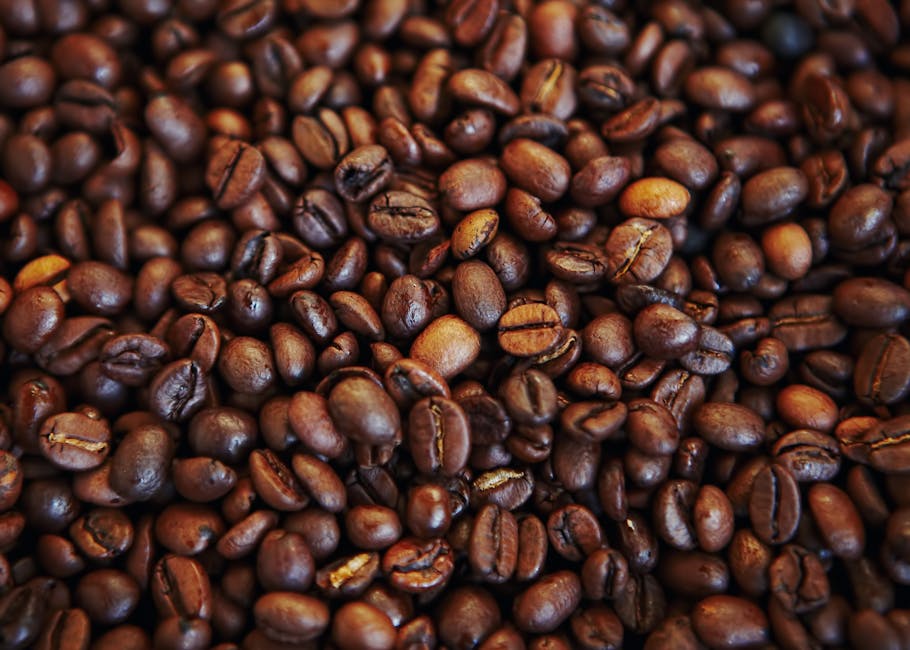Grilled Lemon Herb Chicken Skewers represent a delightful convergence of global culinary traditions, showcasing the versatility of chicken and the bright, refreshing flavors of the Mediterranean. While pinpointing a precise origin is difficult, the concept of grilling marinated meat on skewers dates back millennia. Archaeological evidence suggests that early humans utilized similar cooking methods, with variations appearing across different cultures. The use of skewers, for instance, allowed for even cooking over open flames, a crucial advancement in early food preparation. This fundamental technique, passed down through generations, evolved into the diverse array of kebabs and grilled meats we enjoy today.
The specific combination of lemon and herbs in chicken skewers, however, likely finds its roots in the cuisine of the Mediterranean region. Countries like Greece, Turkey, and Italy have long incorporated lemon, oregano, thyme, and rosemary into their dishes, utilizing these ingredients to enhance the flavor of poultry and other meats. The bright acidity of lemon cuts through the richness of the chicken, while the aromatic herbs add depth and complexity. This combination is not only delicious but also reflects the region’s abundance of fresh, sun-ripened produce and a focus on simple, yet flavorful, cooking methods. Globally, chicken is one of the most consumed meats, with an estimated 90 billion chickens raised for meat annually, highlighting its central role in various cuisines worldwide.
The cultural significance of grilled meats, including chicken skewers, extends beyond simply providing sustenance. These dishes often feature prominently in social gatherings, festivals, and celebrations, serving as a symbol of community and shared experience. The communal act of preparing and sharing these skewers fosters a sense of connection, highlighting the social and cultural importance of food. Furthermore, the ease of preparation and portability of skewers makes them ideal for outdoor events, picnics, and barbecues, further contributing to their popularity. In recent years, the popularity of grilling has surged, with studies showing a significant increase in backyard barbecue enthusiasts, fueling the demand for diverse and flavorful grilled recipes, including these vibrant lemon herb chicken skewers.
Ingredients and Measurements
This recipe for Grilled Lemon Herb Chicken Skewers yields approximately 6 servings, depending on skewer size and appetite. Precise measurements are crucial for achieving the perfect balance of flavors and ensuring even cooking. We recommend using a kitchen scale for the most accurate results, especially when measuring the chicken.
Chicken: 1.5 lbs boneless, skinless chicken breasts. Cut the chicken into 1-inch cubes. Using uniform-sized cubes is essential for even cooking. Larger pieces may remain undercooked while smaller pieces overcook. It’s always better to err on the side of slightly smaller pieces.
Marinade: The vibrant marinade is key to the flavor of these skewers. We’ll be using fresh herbs for maximum impact. Here’s the breakdown:
- Lemon Juice: ¼ cup freshly squeezed lemon juice. Using fresh juice offers a superior flavor compared to bottled juice.
- Olive Oil: ¼ cup extra virgin olive oil. This adds richness and helps the chicken stay moist during grilling.
- Garlic: 2 large cloves garlic, minced. Mince finely for even distribution throughout the marinade.
- Fresh Herbs: 2 tablespoons chopped fresh rosemary, 1 tablespoon chopped fresh thyme, and 1 tablespoon chopped fresh oregano. Adjust the herbs to your preference; feel free to substitute or add other herbs like parsley or basil. Fresh herbs offer a more intense flavor than dried.
- Lemon Zest: 1 tablespoon lemon zest. This adds a bright citrusy note to the marinade.
- Salt: 1 teaspoon salt. Use kosher salt or sea salt for the best results; table salt is often more concentrated.
- Black Pepper: ½ teaspoon freshly ground black pepper. Freshly ground pepper offers a more intense flavor.
Optional Additions: For extra flavor, consider adding a pinch of red pepper flakes for a touch of heat, or a tablespoon of Dijon mustard for a tangy twist.
Skewers: You will need 6-8 metal or soaked wooden skewers. Soaking wooden skewers in water for at least 30 minutes before use is crucial to prevent them from burning on the grill.
Note: These measurements provide a starting point. Feel free to adjust the quantities of herbs and spices based on your personal preferences. Remember to always prioritize food safety by ensuring the chicken is cooked to an internal temperature of 165°F (74°C).
Equipment List
Preparing delicious Grilled Lemon Herb Chicken Skewers requires the right tools to ensure efficient and safe cooking. This equipment list details the necessary items, their specifications, and recommendations for optimal results.
Skewers: You will need approximately 12-15 metal skewers, measuring 12 inches in length. Avoid using wooden skewers, as they are prone to burning and can impart a slightly smoky flavor that might clash with the delicate herb marinade. Metal skewers allow for even cooking and are reusable, making them a more sustainable choice. If using flat metal skewers, ensure they are wide enough to comfortably hold the chicken pieces without overcrowding.
Mixing Bowls: At least two mixing bowls are essential. A large bowl (approximately 5-quart capacity) is needed for marinating the chicken, providing ample space for the chicken pieces to be fully submerged in the marinade. A smaller bowl (approximately 2-quart capacity) will be useful for preparing the lemon herb mixture separately.
Measuring Cups and Spoons: Accurate measurements are crucial for consistent flavor. A set of standard measuring cups (1 cup, ½ cup, ¼ cup, and ⅓ cup) and measuring spoons (1 tbsp, 1 tsp, ½ tsp) are necessary to ensure the correct proportions of marinade ingredients. Using a kitchen scale for weighing ingredients is highly recommended for precision and consistent results.
Cutting Board: A large, sturdy cutting board (at least 12×16 inches) is vital for safely and efficiently cutting the chicken into bite-sized pieces. Choose a cutting board made of durable material like plastic or wood, and always remember to clean it thoroughly after use to prevent cross-contamination.
Sharp Knife: A sharp chef’s knife (approximately 8-inch blade) is ideal for cutting the chicken into uniformly sized pieces. This ensures even cooking and prevents some pieces from overcooking while others remain undercooked. A dull knife is dangerous and inefficient; invest in a sharp knife and learn proper knife handling techniques.
Grill: A gas grill, charcoal grill, or even a grill pan will work for this recipe. Regardless of the grill type, ensure it’s properly preheated to medium-high heat before placing the skewers on the grill. Using a grill thermometer will ensure accurate temperature control.
Tongs: Long handled tongs (at least 12 inches) are crucial for safely turning and maneuvering the skewers on the hot grill. Avoid using forks, as they puncture the chicken, causing valuable juices to escape.
Basting Brush: A basting brush will help you evenly distribute any remaining marinade during cooking, enhancing the flavor and color of the chicken.
Marinade Preparation
The success of these Grilled Lemon Herb Chicken Skewers hinges on a flavorful and well-balanced marinade. This recipe yields enough marinade for approximately 1.5 lbs of boneless, skinless chicken breasts, easily adjustable for larger or smaller batches. Ensure your chicken is thoroughly dry before marinating to promote better flavor absorption. Pat it dry with paper towels after rinsing.
In a medium-sized bowl, whisk together the following ingredients: 1/4 cup extra virgin olive oil, 1/4 cup fresh lemon juice (about 1 large lemon), 2 cloves garlic, minced, 2 tablespoons chopped fresh rosemary, 1 tablespoon chopped fresh thyme, 1 teaspoon dried oregano, 1/2 teaspoon salt, and 1/4 teaspoon black pepper. Using fresh herbs significantly enhances the flavor profile; however, you can substitute dried herbs if necessary, using about 1/3 the amount.
For the garlic, consider using a garlic press for a smoother, less chunky marinade. If you prefer a more intense garlic flavor, feel free to add an extra clove. Taste the marinade and adjust the seasoning to your liking. You might want to add a pinch more salt or pepper, or even a dash of red pepper flakes for a subtle kick.
Once all the ingredients are well combined, add the cut chicken pieces to the bowl. Gently toss the chicken to ensure it’s evenly coated with the marinade. Use tongs or your hands (clean, of course!), making sure to work the marinade into all the crevices of the chicken. Avoid over-mixing, as this can toughen the meat.
Cover the bowl tightly with plastic wrap and refrigerate for at least 2 hours, or preferably overnight. This allows the chicken to absorb the flavors fully, resulting in incredibly tender and juicy skewers. Marinating for longer periods, up to 24 hours, will intensify the flavors even further. However, avoid marinating for longer than 24 hours, as this can lead to the chicken becoming mushy. Remember to remove the chicken from the refrigerator at least 30 minutes before grilling to allow it to come to room temperature for even cooking.
Discard any leftover marinade after you’ve used it to marinate the chicken. Never reuse marinade that has been in contact with raw meat.
Chicken Preparation
Preparing the chicken for your Grilled Lemon Herb Chicken Skewers is crucial for achieving perfectly cooked, flavorful skewers. We’ll be using 1.5 lbs of boneless, skinless chicken breasts for this recipe, yielding approximately 12-15 skewers depending on size. Begin by ensuring your chicken is thoroughly chilled. This helps prevent bacterial growth and ensures even cooking.
First, cut the chicken breasts into 1-inch cubes. Consistency in size is key; this ensures even cooking and prevents some pieces from becoming overcooked while others remain underdone. Aim for cubes that are as uniform as possible. Using a sharp knife will make this process much easier and safer.
Next, place the chicken cubes in a large bowl. To this, we’ll add the marinade. For this recipe, you’ll want to combine 1/4 cup olive oil, 2 tablespoons lemon juice (freshly squeezed is best!), 2 cloves garlic (minced), 1 tablespoon dried oregano, 1 tablespoon dried thyme, 1 teaspoon salt, and 1/2 teaspoon black pepper. Thoroughly mix the marinade ingredients before adding them to the chicken.
Gently toss the chicken cubes in the marinade, ensuring each piece is evenly coated. Avoid over-mixing, as this can toughen the chicken. Once coated, cover the bowl with plastic wrap and refrigerate for at least 30 minutes, or preferably 2-4 hours. This allows the chicken to fully absorb the flavors of the marinade, resulting in incredibly tender and juicy skewers.
For optimal flavor and safety, never marinate chicken at room temperature. Always marinate in the refrigerator. If marinating for longer than 2 hours, it is recommended to transfer the marinated chicken to a clean bowl before grilling to prevent cross-contamination from any bacteria that may have accumulated in the marinade.
After marinating, remove the chicken from the refrigerator about 15 minutes before threading onto the skewers to allow it to come to a slightly warmer temperature. This helps with even cooking on the grill. Remember to discard any leftover marinade; never reuse marinade that has come into contact with raw chicken.
Once the chicken is ready, you can begin threading it onto skewers. Use metal or soaked wooden skewers to prevent burning during grilling. If using wooden skewers, soak them in water for at least 30 minutes before use. Arrange the chicken pieces evenly on the skewers, leaving a small gap between each piece for better cooking and to prevent overcrowding.
Skewer Assembly
Assembling your chicken skewers correctly is crucial for even cooking and beautiful presentation. We recommend using 12-inch metal skewers for this recipe, as they conduct heat well and are sturdy enough to handle the chicken without bending. Avoid using wooden skewers unless you soak them in water for at least 30 minutes prior to use; otherwise, they may burn on the grill.
Prepare your chicken by cutting it into 1-inch cubes. This ensures consistent cooking times and prevents some pieces from being undercooked while others are overcooked. We’re aiming for approximately 12-15 cubes of chicken per skewer, depending on the size of your chicken pieces. Ensure the chicken pieces are relatively uniform in size for even grilling.
Now, let’s assemble the skewers. Begin by threading a piece of lemon onto the skewer, followed by a piece of chicken. Continue alternating lemon and chicken, adding a sprig of fresh herbs (rosemary and thyme work beautifully) after every 2-3 pieces of chicken. This arrangement not only looks appealing but also distributes the flavor evenly throughout the skewer. Don’t overcrowd the skewers; leave a small space between each piece to allow for proper heat penetration.
For optimal grilling, it’s important to consider the balance of your skewers. Aim to have approximately the same amount of chicken on each side of the skewer. This prevents one side from cooking faster than the other. If you find yourself with an odd number of chicken pieces, simply add an extra lemon slice or a few more herb sprigs to balance the weight. Proper skewer balance ensures even cooking and prevents the skewers from tipping or toppling on the grill.
Once you’ve finished assembling all your skewers, lightly drizzle them with olive oil. This will help prevent sticking and enhance the browning process. Avoid over-oiling, as excess oil can cause flare-ups on the grill. Season the skewers lightly with salt and freshly ground black pepper just before grilling. This will help to prevent the seasoning from burning during the cooking process. Now you’re ready to grill your delicious Lemon Herb Chicken Skewers!
Grilling Techniques for Perfect Lemon Herb Chicken Skewers
Grilling chicken skewers requires attention to detail to ensure perfectly cooked, juicy, and flavorful results. This section outlines the techniques for achieving grilling perfection with your Lemon Herb Chicken Skewers.
Preparation is key. Before you even think about firing up the grill, ensure your chicken is thoroughly marinated for at least 2 hours, or preferably overnight. This allows the flavors to penetrate deeply, resulting in more tender and flavorful skewers. Remember to remove the chicken from the refrigerator 30 minutes before grilling to allow it to come to room temperature – this ensures even cooking.
Preheat your grill to medium-high heat (around 375-400°F or 190-200°C). This is crucial for achieving nice grill marks without burning the chicken. If using a gas grill, preheat for 10-15 minutes. For charcoal grills, aim for a medium-hot bed of coals with a consistent heat distribution. You should be able to hold your hand about 6 inches above the grates for 4-5 seconds – any longer and it’s too hot.
Oil the grates generously. This prevents sticking and ensures beautiful grill marks. Use a high-heat oil like canola or vegetable oil. Apply the oil using a paper towel or a grill brush, ensuring all areas of the grates are coated.
Arrange the skewers on the preheated grill, leaving some space between each one for even cooking and airflow. Avoid overcrowding the grill. Grill for approximately 6-8 minutes per side, or until the internal temperature reaches 165°F (74°C) using a meat thermometer. The chicken should be cooked through and no longer pink inside. Turn the skewers gently using tongs to avoid piercing the chicken and losing juices.
Monitor the cooking process closely. Cooking times can vary based on the size of your chicken pieces and the heat of your grill. Use a meat thermometer to ensure the chicken is cooked to a safe internal temperature of 165°F (74°C). This is the only reliable way to guarantee the chicken is fully cooked and safe to eat.
Rest the skewers for 5-10 minutes before serving. This allows the juices to redistribute throughout the chicken, resulting in more tender and flavorful skewers. Cover the skewers loosely with foil while they rest.
Tips for Success: Soak wooden skewers in water for at least 30 minutes before threading the chicken to prevent them from burning on the grill. If using metal skewers, ensure they are grill-safe. Don’t press down on the chicken while it’s cooking; this will squeeze out the juices. Finally, enjoy your delicious, perfectly grilled Lemon Herb Chicken Skewers!
Recommendations for Grilled Lemon Herb Chicken Skewers
These Grilled Lemon Herb Chicken Skewers are a delicious and healthy meal option, perfect for a summer barbecue or a light weeknight dinner. For optimal flavor, marinate the chicken for at least 30 minutes, or preferably up to 4 hours, allowing the herbs and lemon juice to penetrate the meat. Over-marinating can make the chicken slightly mushy, so avoid leaving it in the marinade for longer than overnight.
Serving Suggestions: These skewers are incredibly versatile. Serve them as a main course with a side of fluffy rice, a vibrant quinoa salad, or grilled vegetables like zucchini, bell peppers, and onions. A simple Greek salad with feta cheese and olives would also complement the lemony flavors beautifully. For a complete meal, consider serving them with crusty bread to soak up the delicious juices.
Storage: Leftover skewers should be stored in an airtight container in the refrigerator for up to 3 days. Do not refreeze previously frozen chicken. To reheat, you can either grill them again briefly for a crispier texture or gently warm them in a pan on the stovetop. Avoid microwaving, as this can make the chicken dry.
Complementary Dishes: To enhance your dining experience, consider pairing these skewers with a refreshing cucumber and yogurt dip, a zesty chimichurri sauce, or a light lemon-herb vinaigrette. A side of roasted potatoes or sweet potato fries would also provide a satisfying contrast in texture and flavor. For a more sophisticated touch, try serving them with a couscous salad incorporating dried cranberries and toasted almonds.
Nutritional Information (per serving, approximate): The exact nutritional content will vary depending on the size of the chicken pieces and the ingredients used in the marinade. However, a typical serving of these skewers will contain approximately 250-300 calories, 30-40g of protein, 10-15g of fat, and 5-10g of carbohydrates. This information is an estimate and should not be considered a substitute for professional nutritional advice. It’s always best to calculate the exact nutritional value based on the specific ingredients and quantities you use.





